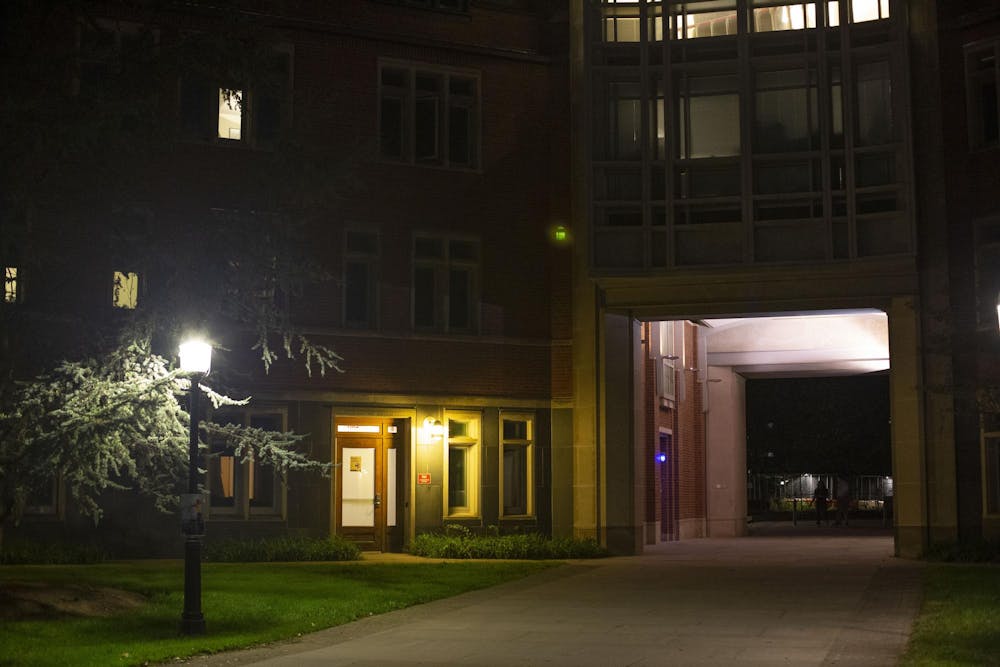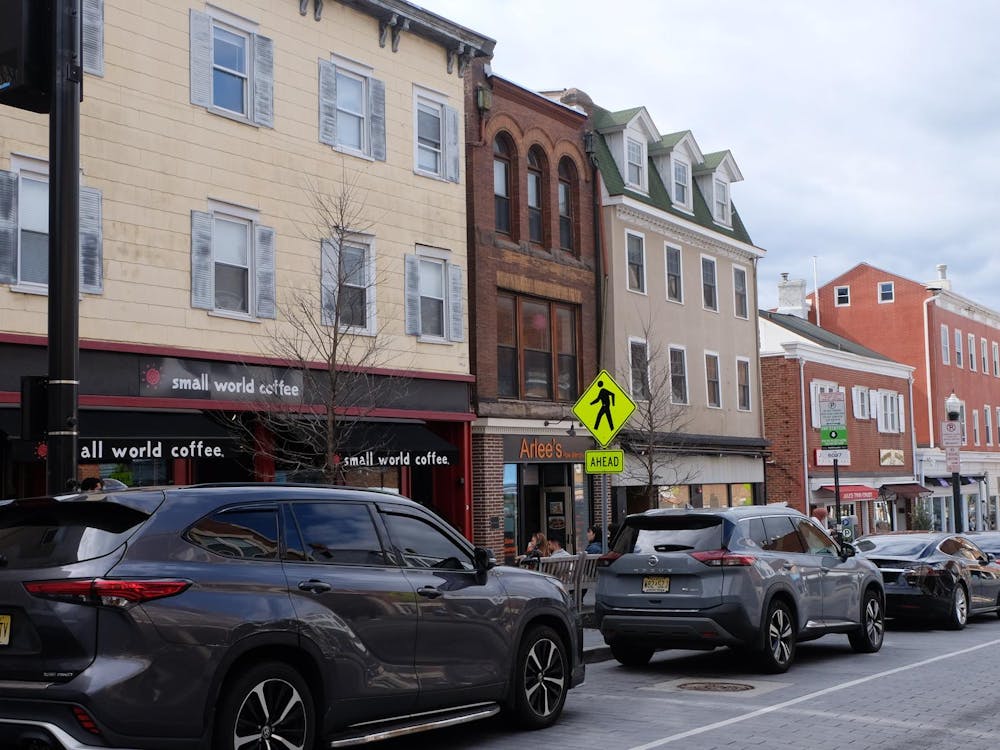In 2021, Atlantic reporter Emma Green pressed President Christopher Eisgruber ’83 on whether Princeton should exist, noting that compared to The City University of New York, for example, Princeton spends an extraordinary amount of money on its relatively few students. Eisgruber noted that Princeton’s purpose was to educate future leaders, but in recent years, Princeton has also focused on creating programs that serve more than the campus community, specifically aimed at helping students achieve social mobility. In 2022, Princeton formed a research partnership with five historically black colleges and universities (HBCUs) to facilitate inclusion in a variety of academic disciplines. Princeton has also recently started a program to help local community college students transition to four-year colleges, which Eisgruber recently touted while at the White House.
The Transfer Scholars Initiative (TSI), a program within the Emma Bloomberg Center for Access and Opportunity, piloted its first cohort of students in summer 2023. The eight-week, commuter-only program welcomed the cohort on campus for two for-credit courses. TSI goes beyond the classroom by providing advising and academic support resources, as well as many of the resources provided to full-time students, such as library assets, access to Dillon Gym, and a limited meal plan. The program’s website does note, however, that the goal of TSI isn’t to be a pipeline to the University.
The program garnered attention after Eisgruber mentioned it at the White House during a panel unveiling the Department of Education’s new report: “Strategies for Increasing Diversity and Opportunity in Higher Education.” He called the transfer program a “powerful vehicle of diversity” and shared that the University’s ambition is to help “close the completion gap between community colleges and four-year schools.”
TSI hosted 40 students from seven partnering New Jersey community colleges, including Camden County College, Mercer County Community College, Middlesex College, Hudson County Community College, Raritan Valley Community College, Rowan College of South Jersey, and Union College of Union County. To be eligible to apply for the program, students must be nominated by faculty or advisors at their school.
Those selected to be Transfer Scholars enroll in a two-course, full-time, eight-week curriculum which, upon completion, earns them two course credits and a Princeton affiliation. The first course, WRI 100, is similar to the undergraduate writing seminar. The second course, which is taken alongside incoming Princeton first years in the Freshman Scholars Institute (FSI), is a “Quant Lab.” Five courses satisfy the “Quant Lab” requirement spread across varying academic interests: SOC/POL 245: Visualizing Data, COS 125: The Art and Science of Computer Programming, EGR 150: Foundations of Engineering, HUM 295: Humanistic Approaches to Media and Data, and MOL 152: Laboratory Research in the Life Sciences.
The program’s academic requirements mirror those of FSI closely. FSI is a program aimed at ensuring first-generation low income students are prepared for the Princeton academic experience.
“I think that overall, you need the skills that were taught in [WRI 100] for anything that you do,” Myra Niang, a Raritan Valley Community College and TSI student, said in an interview with The Daily Princetonian. “It really helped me think about my future and what I wanted to do.”
Keith Shaw, the director of transfer and outreach at the Emma Bloomberg Center, said in an interview with the ‘Prince’ that TSI was created to work with regional New Jersey community colleges and help students make informed decisions about four-year colleges and later career choices.

Part of this programming includes co-curricular Transfer Success Workshops, where students learn the components of a successful transfer. Students also keep in touch with TSI staff after they return to their community colleges for regular check-ins on application progress. According to Shaw, students return to campus on Oct. 14 and 15 to participate in an application workshop.
David Galarza, a Hudson County Community College and TSI student, said in an interview with the ‘Prince,’ “Before the program, I really wasn’t sure even if I was going to be applying to a four-year college.” He added that “the TSI program, especially Dr. [Keith] Shaw and Dr. [Jordan] Reed, really [showed me] some pathways that I can take, so I can apply not only to four-year universities but also highly selective four year colleges. It really changed my mindset.”
Niang, a math major, said the program opened her mind to new career possibilities when advisors encouraged her to consider a career in public policy due to her civic passions.
“That was the first time that I heard that I should probably do public policy, which is just … I’m a math major, I’ve never thought about … working in any type of, you know, humanities or social sciences before.”

For other students, TSI shaped how they viewed their futures in different ways.
Naomi Hed, a student at Mercer County Community College, wrote in an email to the ‘Prince’ that while she enjoyed the “grind” of TSI, she “wouldn’t have been able to do it for an entire semester, let alone two years … there are big things I value too much to just not do in order to keep up with Princeton-level rigor.”
The program is completely free for accepted students; each receives a “generous” stipend to cover expenses, including travel. TSI was commuter-only in summer 2023, leaving some students, like Galarza, traveling four hours every day to and from the University. Shaw hopes there will be residential options in future years.
With the success of TSI’s inaugural summer, the program is also looking to expand in coming years, extending access to more regional community colleges and their students.
Shaw shared that the program aims to grow to accommodate 100 students over the next two years. He hopes the growth of TSI does not only happen internally but also creates “a model that’s exportable to other places.”
Thomas Catalano is a News contributor for the ‘Prince.’
Bridget O’Neill is an assistant News editor for the ‘Prince.’
Please send any corrections to corrections[at]dailyprincetonian.com.








